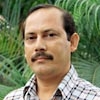Tough days ahead for Paresh Baruah, the military chief of the banned United Liberation Front of Asom (Ulfa). Slowly losing ground in Bangladesh, he is also under attack from government forces in Myanmar. The elusive Barua, who had been hiding in Dhaka for many years, recently left the country and is said to be holed up somewhere in the Burma-China border. Given the increasing strategic relationship between Dhaka and New Delhi, he is finding it difficult to maintain activities in Bangladesh, where once he and his armed outfit enjoyed a free run with the help of other Ulfa political-wing leaders.
Recent media reports have once again revealed that the Ulfa in general, and Barua in particular have invested heavily in various Bangladeshi enterprises. The outfit’s general secretary, Anup Chetia (now in a Bangladesh jail), took the initiative to invest in some avenues in Bangladesh that would be beneficial for the outfit, which is fighting for a Swadhin Asom from outside India. Chetia is also said to have cultivated pro-Ulfa Bangladeshi politicians and even a section of the media in Dhaka.
A report prepared by Indian security and intelligence agencies with the help of Bangladesh’s National Security Intelligence, divulges that Baruah has investments in real estate, the health sector, textiles, shipping, power projects and restaurants – all worth $20 million and with, of course, fake identities. The report discloses that the Ulfa leader invested around $14 million in three Dhaka-based real estate firms – namely, Basundhara Real Estate (17 per cent stake), Eastern Housing Project (nine per cent stake) and Jamuna Group Housing Project (two per cent stake). His money is also said to be involved in Chowdhury Shipping ($2.5 million), Kasem Textiles ($1.7 million), Samrita Hospital ($200,000), and a Chinese restaurant, Wimfray ($100,000). It also said Barua annually receives nearly $500,000 through a money transfer agency for spending on various activities.
News from Burma (Myanmar) says separatist militant outfits from the North-east are facing attacks from the Myanmarese army. With Myanmar President Thein Sein due to visit India next month, the attacks on Ulfa and other outfits in the jungles of northern Myanmar are expected
to intensify. A recent statement from the Ulfa camp revealed that their hideouts inside Myanmar had been attacked by government forces but it claimed that all of their cadres escaped unhurt. Another Ulfa statement claimed that Barua had not sustained any bullet injuries in the offensive as was widely reported in the media.
Apart from Barua’s outfit, the NSCN (Khaplang), Manipur People’s Liberation Army, United National Liberation Front and Prepak have training camps in Myanmar’s Sagaing division, where nearly 300 are undergoing intensive arms and ammunition training. To prove its claims, the Ulfa statement added a photograph of Barua, the second of the notorious leader to be released in the last few months. The email statement, issued by close Barua associate Arunoday Dahotiya went on to allege that New Delhi had supplied a huge amount of arms and money to the Myanmar regime to go on the offensive against the militants.
It is worth mentioning that the Indian government recently supplied 52 military truckloads of arms and ammunition to the Myanmar government. India continues to maintain a strategic and military relationship with that country’s regime despite the brickbats from the international community. Expressing resentment at New Delhi’s continued military relationship with Nay Pie Taw, Myanmar’s new capital, hundreds of pro-democracy Myanmarese and Indian activists demonstrated in New Delhi on 22 July 2011, arguing that “supplying arms to the most brutal military dictatorship may have grave consequences to millions of innocent lives”.
Born in 1979 with the intent of rendering Assam independent of India, the Ulfa today is a divided house, with chairman Arabinda Rajkhowa and his followers having joined in the peace process with New Delhi. But Barua continues to stick to the primary demand. Dahotiya’s email
claimed that New Delhi paid a special economic package worth as much as Rs 20,000 crore to flush out the rebel camps from Myanmar, adding that the Myanmar government had been offered Rs 100 crore “to kill Paresh at the earliest”.
It also said that New Delhi had, for some time now, maintained the practice (of paying neighbouring countries in need) and paid a Rs 1,000-crore package to Bhutan to destroy Ulfa, following which Thimpu flushed out the outfit’s camps in December 2003. Dahotiya also claimed New Delhi had recently offered money to the Dhaka government led by Awami League chief Sheikh Hasina, with a request to take action against Ulfa leaders and cadres sheltering in that country. Accordingly, Dhaka handed over many militant leaders. No official statement was issued by the Bangladesh government.


